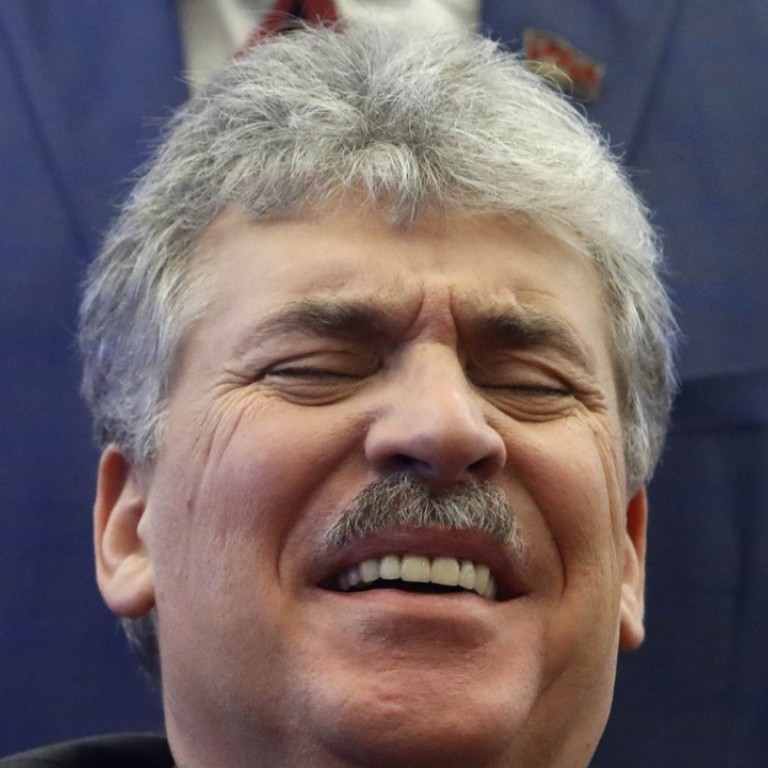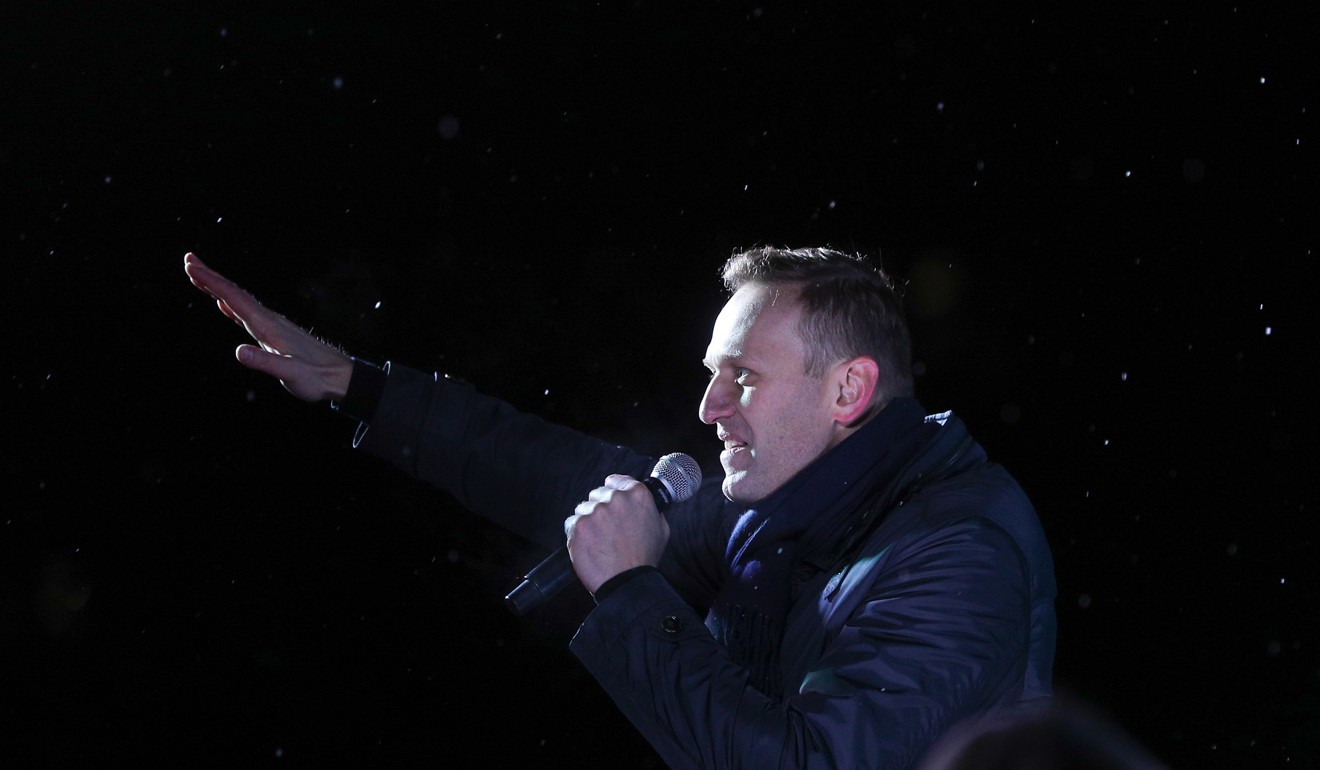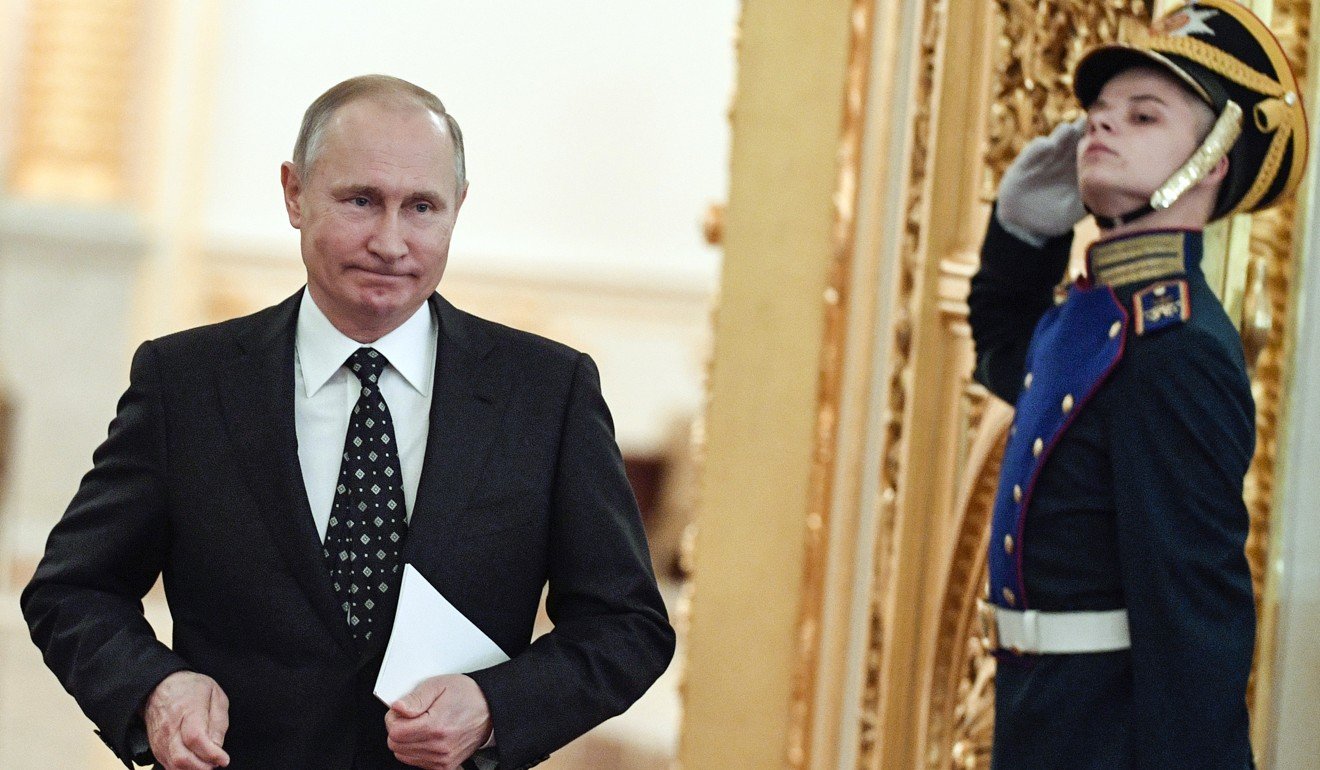
Analysis | Russian Communist candidate has zero chance against President Vladimir Putin … but a man can dream
Although Putin is overwhelmingly favoured to win a new six-year term March 18, Pavel Grudinin has as good a chance as anyone to come in second
There’s a Russian candidate for president who is wildly popular on YouTube, where he slams the policies of President Vladimir Putin.
He has a nationwide political machine and a constituency of millions who are fed up with the current Kremlin occupant and his oligarch friends.
Although Putin is overwhelmingly favoured to win a new six-year term March 18, this contender has as good a chance as anyone to come in second.
And no, his name is not Alexei Navalny.
It is Pavel Grudinin, the surprise nominee of the Communist Party of the Russian Federation, named last month to replace Gennady Zyuganov, the party’s 73-year-old leader and four-time presidential runner-up.
Grudinin, 57, has steered a formerly state-run produce farm outside Moscow into a flourishing business he markets as a showcase for the socialism he’d bring back to Russia.
Like Navalny, the 41-year-old anti-corruption activist excluded from the ballot by Russia’s election commission last month, Grudinin appeals to Russians tired of Putin after his 18 years in power.
In well-watched videos with titles like “Grudinin told it like it is! And the State Duma fell silent,” Grudinin openly ridicules Putin’s reliance on “people everyone knows should’ve been in prison long ago,” and promises to repatriate billions from offshore accounts maintained by Russian elites.
Watch: Navalny confident he could beat Putin in fair election
As Navalny has done in the past, Grudinin addresses Russian nationalists - both men have spoken out against economic migrants from Central Asia. Both also express umbrage that Russians don’t live as well as people in the West.
“I think Russian people should live better than the people we defeated in the war,” Grudinin declared last month on the popular Sunday Evening With Vladimir Solovyov political talk show, referring to Germany.
Grudinin also appeals to Russians who regret the 1991 collapse of the Soviet Union - 58 per cent, according to a recent poll.
Grudinin can show them something neither Navalny nor Putin can: the Lenin Sovkhoz, a former Soviet collective farm he has built into a “socialist oasis in the capitalist jungle of suburban Moscow,” as he put it recently.
The Lenin Sovkhoz provides fruit and vegetables to Moscow’s upscale supermarkets, which cater round-the-clock to people willing to pay a premium for fresh produce.

Grudinin, who acknowledged he drew a US$350,000 monthly salary, said his workers make about US$1,370 per month, more than double the Russian average, and were guaranteed medical care, children’s education and housing.
Putin, addressing the United Russia political party congress that nominated him last month, vowed to fight corruption, offer greater incentives for business and spend to build up Russia’s badly underfunded health care and education system.
“But making new promises is risky for the president, because what was he doing for 18 years?” Russian journalist Andrei Pertsev wrote in a recent analysis for the Carnegie Moscow Centre think tank. “Grudinin fills a need for promises of a better life and criticism of those currently in power.”
Now, if you’ve reading about Grudinin for the first time, don’t blame yourself.
Outside Russia, coverage of the presidential campaign has focused on Navalny, whose political odyssey has captured the Western fascination with the guy who stands up to the Kremlin.

Navalny doesn’t lead any particular united opposition other than his own campaign organisation, admirably assembled though it may be, and under very adverse conditions.
Polls suggest his ability to organise nationwide anti-corruption protests has not translated into political popularity.
Navalny remained prominent primarily because he campaigned throughout 2017 while most other candidates waited for Putin to announce his intention to run in December.
Russian election officials’ decision to ban Navalny over a criminal conviction he decries as politically motivated, and his subsequent calls for a boycott, have kept him in the news.
Meanwhile, Grudinin has been making the circuit on the same state-run TV channels closed to Navalny, the medium where most Russians get their news.
He has yet to show up in polls, which predict a sweeping rout for the incumbent, but the more he gets his message out, the more his recognition is likely to grow.
Still, how far will that take him?
Russia’s political system under Putin includes the Communists, along with the ultranationalist Liberal Democratic Party of Russia, led by another perennial presidential candidate, Vladimir Zhirinovsky, as part of something called “the systemic opposition”.
These parties technically provide voters with alternatives to Putin and United Russia, but their leaders rarely, if ever, try to block Kremlin policy.
Zyuganov thundered against then-President Boris Yeltsin in 1996 and won 41 per cent of the vote. (It’s worth mentioning in the era of the Russian meddling investigation in the United States that American political advisers took credit for helping the Kremlin incumbent pull out that victory.)
So when Grudinin showed up, sounding as if he truly wants to replace Putin, the questions were: How sincere is he? And how much runway will the Kremlin allow him?
Russian analysts assume Grudinin’s candidacy is part of a Kremlin project to raise voter turnout by offering lots of loyalist alternatives to Putin (including Zhirinovsky for nationalists and television personality Kseniya Sobchak for Westernising liberals).
“The Communist Party is a pro-government party integrated in the state political system, so no one should consider its campaign decision to be a stunt unexpected by the authorities,” political analyst Yevgeny Minchenko commented in a Facebook post.
In this system, “the communist nominee gets his 15 per cent plus or minus,” Pertsev wrote. “But this scenario only plays out if the candidate plays by the systemic rules.”
That is, he added, if Grudinin doesn’t garner more than his allotted share by taking full advantage of his appeal to “liberals as a successful businessman, supporters of the USSR as a ‘red director’ and to others as an opposition politician.”
Is there a chance of that? Who knows?
But at least now you have a reason besides Navalny to pay attention to Russia’s election campaign.

